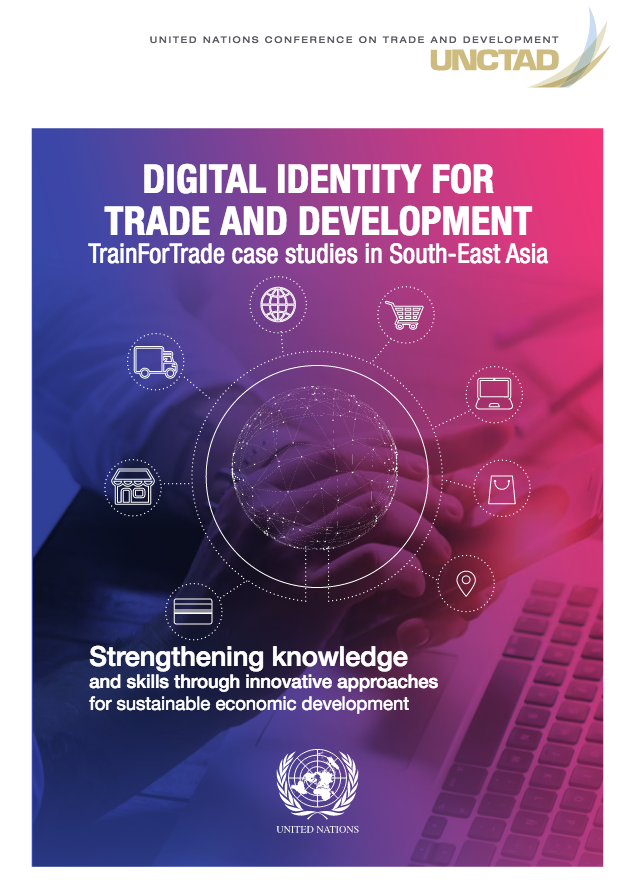Digital Identity For Trade and Development: case studies in South East Asia

As connectivity within South-East Asia grows, it is critical for governments to put in place frameworks and mechanisms to leverage these developments and increase the use of digital platforms, while ensuring that there is proper governance, trust and authentication measures to support the development of the digital economy.
Often considered the foundation of a digital economy, the creation of a digital identity system is critical to enable every person to fully participate in their society and economy. Without proof of identity, people may be denied access to rights and services – such as the ability to open a bank account, attend school, access health services, collect social benefits, seek legal protection or otherwise engage in modern society.
Against this backdrop, UNCTAD’s 2030 TrainForTrade Development Account project Leapfrogging skills development in e-Commerce in South-East Asia includes a component on digital identity for trade and development (the project). Designed as a capacity building project, and developed in cooperation with UNCITRAL, UNESCAP, the World Bank Group and the Ministry of Trade and Industry of Singapore, the global objective of the project is to facilitate the identification and drafting of policies on digital identity related to trade and development and the implementation of a national digital identity framework (NDIF).
This report explores in chapter one a brief history of the project. Chapter two gives an overview of some of the national strategies undertaken in South-East Asia in the implementation of a digital identity. Chapter three presents seven selected case studies prepared by the project’s participants, covering the relevant legal and policy frameworks, as well as the current status of digital ID development in Cambodia, Indonesia, Malaysia, Myanmar and the Philippines. These selected case studies provide succinct examples of good practices as well as policy recommendations for further development of a NDIF. Chapter four concludes the publication with a list of recommendations.
The project’s goal of sharing experiences, knowledge and expertise among participants and delegates has been well achieved. Through these case studies, participants shared their specific topics of interest, such as data protection and encryption technology, their experiences of the situation in their country, and also some recommendations for consideration. This allowed for a consolidated list of recommendations for policies and development partner support that are targeted at dealing with specific issues raised by the participants.
Given the participants’ overwhelming interest in the implementation of NDIFs, UNCTAD will continue its effort to encourage mutual learning between countries and within their regions in the area of digital identity. With the support and continued efforts of the respective governments, given the groundwork that is already being done in this area, more progress is expected in the implementation of NDIFs across South-East Asia.
This publication was produced in the framework of the UNCTAD TrainForTrade programme, financed by the United Nations Development Account 11th Tranche for the South-East Asia region.
(UNCTAD/DTL/STICT/2009/1)





